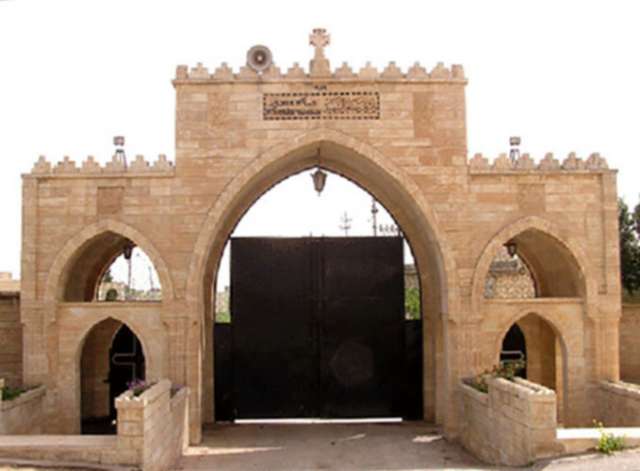They forced two priests, a monk, a guard and a few families taking refuge there to leave the Syriac Catholic compound. Like many Christians from Mosul, which lies in the province of Nineveh, home to many historic Christian places of worship, the refugees travelled to the relative safety of Kurdish-controlled areas.
Faced with an ultimatum to convert to Islam, pay a religious tax or be killed, most of Mosul’s Christians had fled. That allowed militants to descend on the monastery.
Iraq’s second-largest city is now controlled by militants led by the Islamic State group, formerly known as ISIS, which has also taken over large swaths of the country, in addition to parts of Syria. Iraq’s army, which Christians say never adequately protected them, fell quickly.
The Christians of Mosul are thought to have numbered 35,000 at the time of the 2003 U.S.-led invasion. That number dropped to an estimated 3,000 more recently. Only a few hundred families remained in the city before the ultimatum, according to one resident. Among them are members of the Syriac Catholic Church, one of 22 Eastern Catholic Churches, which are self-governing but enjoy full communion with Rome. Left behind were many places of worship. Auxiliary Bishop Shlemon Warduni of Iraq’s Chaldean Catholic Church said the monastery is “very ancient and we have many ancient and important books in the library there.”
“This is our house and our country,” he said, adding that the militants are outsiders. “They have no right to treat Christians in this way.”
The clerics from Mar Behnam fled to the Christian town of Qaraqosh, about 30 km from Mosul. Qaraqosh is under Kurdish control. Archbishop Petros from Mosul’s Syriac Catholic Church said Qaraqosh is safe for now and at least 250 Christian families have taken refuge there. Petros described the Islamic State ultimatum to the Christians of Mosul as “a threat against humanity.”
A Christian woman hanging laundry outside her temporary home in Ankawa, the Christian district of the Kurdish capital, Erbil, said that after militants took over Mosul the family was left without water and electricity. The family fled from Baghdad in 2005 to escape discrimination there and has now found itself on the move again. Now the family is living in a small home with two other families in the Kurdish region.
“There is no stability in our lives,” said the woman, who declined to give her name. “We are psychologically tired with this situation. I would leave Iraq at any opportunity but we have no other place to go exactly.”
Since the beginning of the year, when militants captured parts of Anbar province in western Iraq, an estimated 1.2 million people have been displaced by violence.
Shiite Muslims as well as Iraqi minorities such as Yazidis, Turkmen and Shabaks are particularly vulnerable to killings and capture by the Islamic State fighters. Human rights groups have expressed concern about attacks by Shiite militias and government airstrikes, as well as Islamic State raids.
This week, the UN Security Council denounced the persecution of minorities in Iraq, condemning “in the strongest terms the systematic persecution of individuals from minority populations.”

